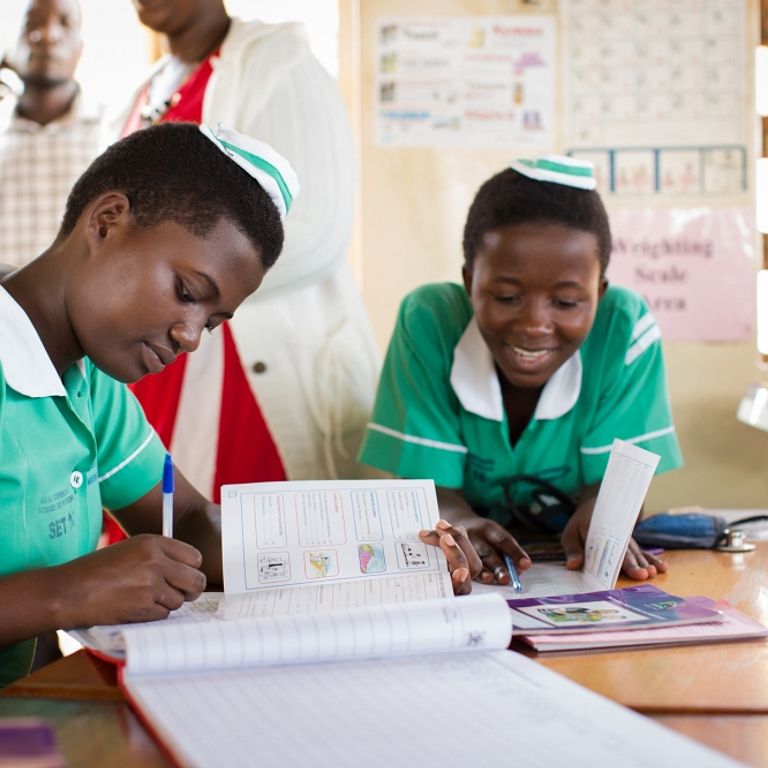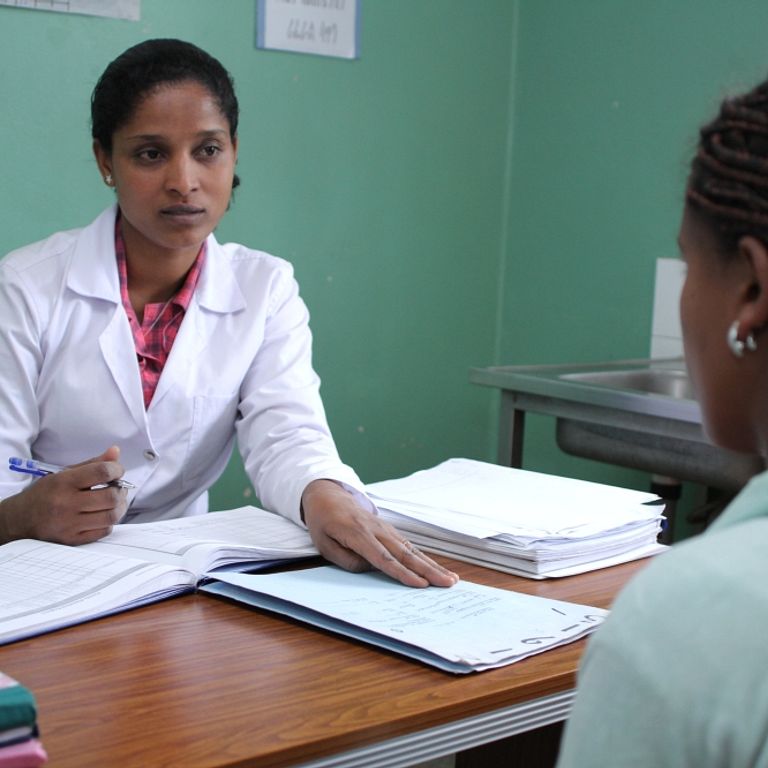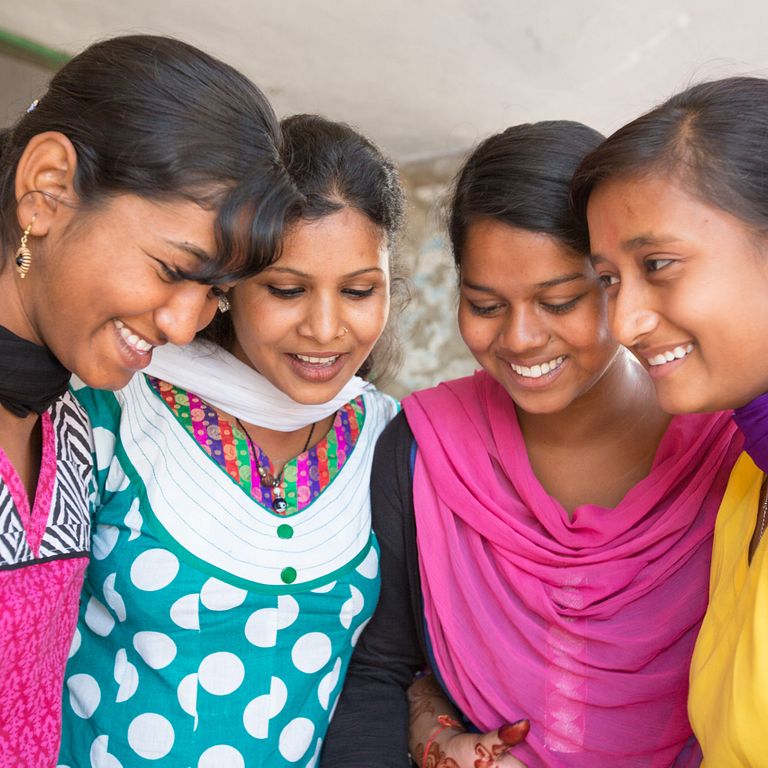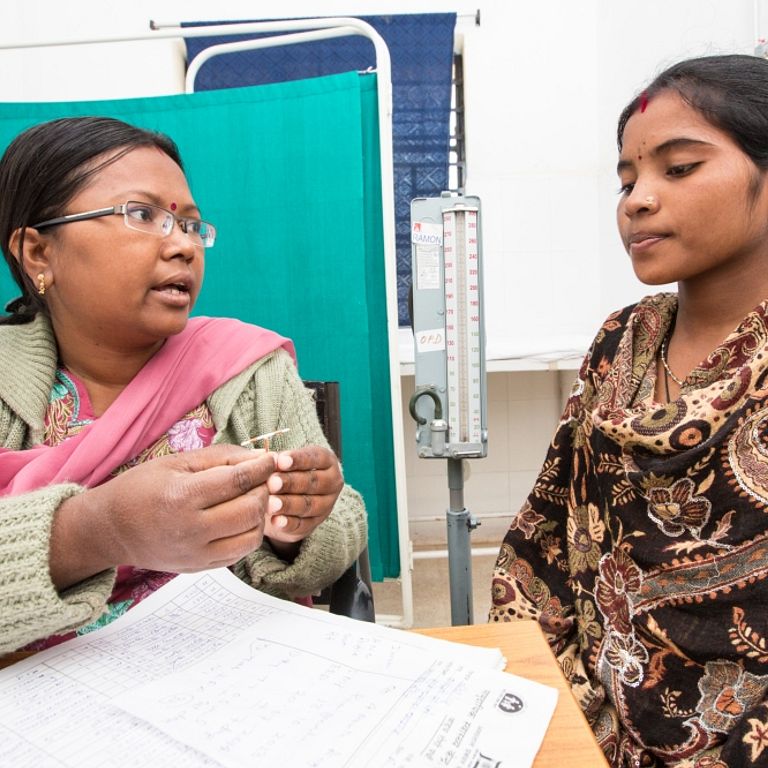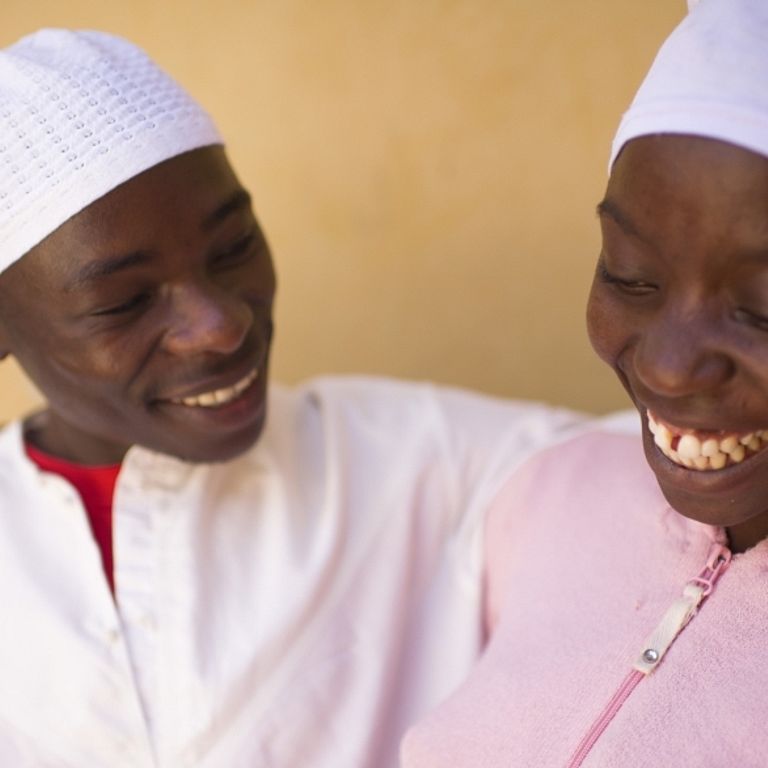Building Rights for Improved Girl’s Health in Tanzania (BRIGHT)

Together with our partners, EngenderHealth both supports and delivers a holistic package of sexual and reproductive health (SRH) and nutrition services, including family planning (FP) support; gender-based violence (GBV) prevention and response services; adolescent-friendly antenatal, postnatal, and postabortion care; nutrition support and counseling; and life skills training to adolescents in the Tabora region of Tanzania. Currently, there is limited access to these services in this region. By breaking down barriers to access and increasing collaboration across services, we are ensuring adolescents can realize their SRH and nutritional care rights.
Tabora is the largest and one of Tanzania’s most remote regions—and adolescents comprise a quarter of its population. According to the World Bank, the fertility rate in Tanzania in 2021 was 4.7%. Tanzanian adolescents, particularly young adolescent girls (10-14), experience low socio-economic status and lack of agency due to existing traditional gender and age-based norms. Cultural practices—including early and forced marriage of girls, transactional sex, and gender-based discrimination and violence, hinder adolescents’ demand for health services and perpetuate gender disparities.The impact of this culture on pregnant adolescents and their children has far-reaching implications, not least when it comes to nutrition. Many girls who become pregnant are still growing and have higher nutritional demands, particularly an increased need for iron. They often face social barriers to receiving adequate diets in settings like Tabora, where gender inequality is prevalent, and iron-rich foods are primarily reserved for men and boys. According to the most recent national health statistics, over 52% of adolescent girls and women (15-59) in Tabora are anemic. Further impacting inequality, Tabora also has the country’s third-highest rate of GBV at 71%, according to the Tanzania Demographic and Health Survey.

The BRIGHT program increases equality among all adolescents by allowing them to exercise their right to SRH and receive adequate nutrition, focusing on young, in- and out-of-school, and pregnant girls. We achieve this by addressing barriers to access and use of information and services tied to both SRH and nutrition: we work with essential influencers— including parents, religious and traditional leaders, policymakers, teachers, and other key members of the community—to create an environment that enables adolescents to exercise their rights. We are working with partners in the region to make existing services more accessible, responsive, and effective to meet the needs of adolescents.
Partnerships are critical to our work everywhere, and this program is no exception. EngenderHealth is partnering with youth-led organizations, community-based organizations, and women’s rights organizations across the Tabora region. Through these partnerships, we work with communities, schools, and the Tanzanian health system to provide a comprehensive, integrated, high-quality package of SRH and nutrition services tailored to the adolescent life stage. And crucially, we will engage with adolescents to increase their demand for and their use of high-quality SRH and nutrition services.
By improving access to SRH and nutrition services for adolescents—particularly girls and young women—and transforming gender norms, we can accelerate progress toward a gender-equitable society.
